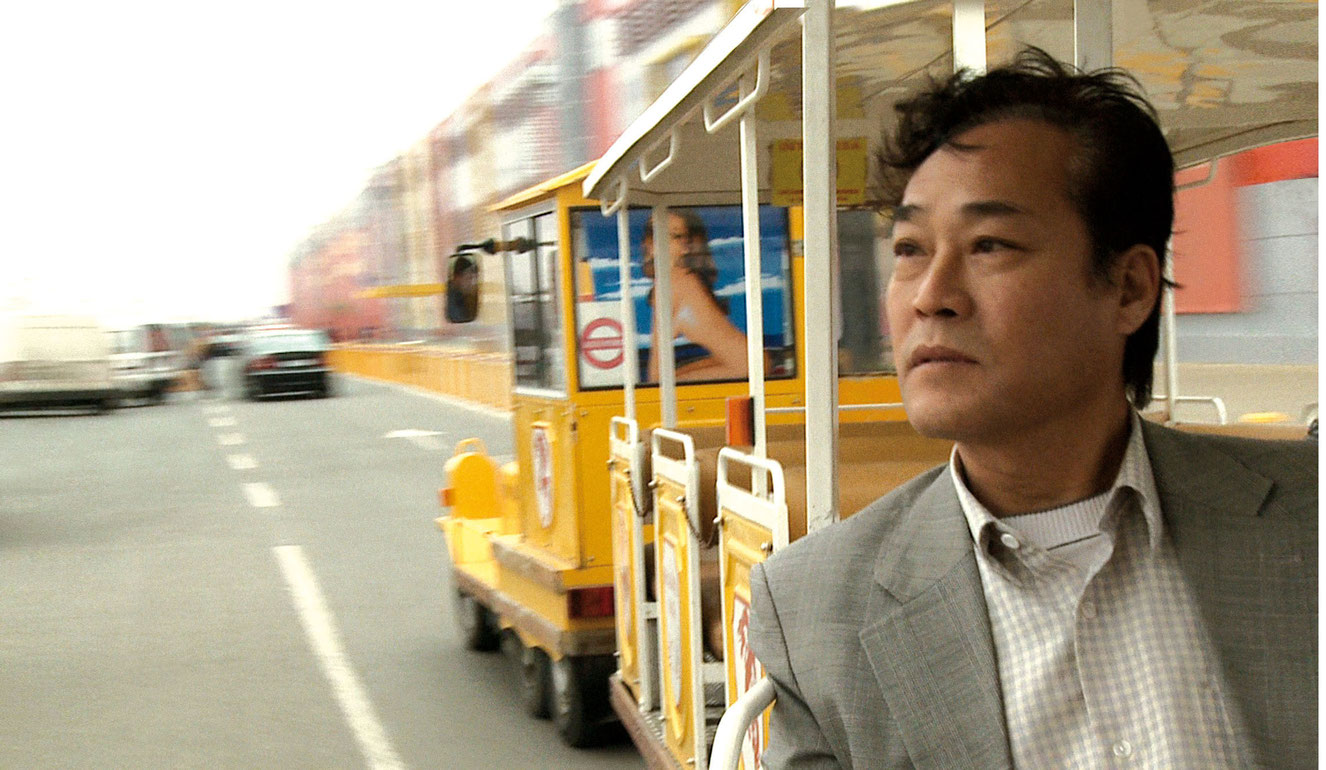Oceanul Mare
In her film Oceanul Mare (Big Ocean), Katharina Copony describes the lives of three Chinese immigrants who came to Bucharest in the early 1990s. In a series of concentrated takes, the camera follows the activities of the three main characters, whether they are inspecting new offices, doing the lay out for a Chinese newspaper, or inspecting the goods and stalls at Europe´s largest Chinese market. The urban and social realities of Asian people are precisely captured in a country that is, for its part, already marked by various cultural influences and the intersection of occident and Orient. Cultural disjointedness becomes evident, among other places, at a Chinese New Years meal taking place in an apartment whose walls are plastered with crucifixes. In the distance, one looks into a casino, with its blinking machines installed in a luxurious nineteenth-century building, a sci-fi atmosphere resulting from leaps in time and between cultures. Social life, which seems natural and intact despite all of the strange seeming hybrid elements, is no paradise. Without any dramatic staging, the viewer finds out about the flipside of a life that promises success: struggles for power and turf result in arson and murder. The ocean appears as a metaphor in Oceanul Mare. The view opens directly to a gray, endless expanse. Against the roar of the waves, a voice tells of the risks and existential loneliness that can accompany life and survival in a foreign land.
Katharina Copony is a careful observer who avoids exposed reactions from her protagonists, allowing them to act outside of the common clichés of life in a foreign country. The transcribing, natural approach of the author is what first enables the life of those portrayed to come to light with all of its subtle complexity.
(Thomas Groetz)
Translation: Lisa Rosenblatt
"The way of the ocean is that big fish eat little fish. The ocean of business means that it is very hard and difficult. If you dont watch out you´ll be gobbled up and drown in the ocean! If youre successful you are a sail that skims across the ocean like a triumphant sailboat!"
At the centre of the film are three Chinese who emigrated to Bucharest in the early 1990s. It follows their trails through the Romanian metropolis and their various connections to the largest Chinese market in Europe, on the outskirts of Bucharest. In a series of episodes, it accompanies the characters through their everyday and business worlds, which are marked by harsh contrasts, and tells of the feeling of being a foreigner, of cultural shifts and the challenge of forever plunging into the unknown and each time having to reinvent oneself. (production note)
go to the film´s HOMEPAGE
Duisburg 2009 - 3SAT-Dokumentarfilmpreis, Jurybegründung (Award)
Anhand des Lebenswegs dreier chinesischer Immigranten in Bukarest lotet Oceanul Mare auf vielschichtige Weise Formen des Fremd-Seins aus. Hier, rund um einen Markt als Umschlagplatz von Waren, kultureller Identität und Träumen, begleitet der Film eine Frau und zwei Männer auf der Suche nach Selbstvergewisserung. Souverän, mit präzisem Blick führt Katharina Copony die bestimmenden Themen des Films zusammen: Sprache als Grenze und Verständigungsmittel, ethnografische und soziale Bedingung und Entwicklung durch Bewegung. Bei Oceanul Mare korrespondieren in bestechender Weise formale Strategien und thematischer Zugang. Eine herausragende Gegenwartsreflexion, die gleichwohl Zukunftsperspektiven öffnet.
7. November 2009, die Jury: Till Brockmann, Heike Hupertz, Michael Pekler
Oceanul Mare (Le grand océan), texte français
Dans une suite de plans concentrés, la caméra retrace les activités des trois protagonistes, quils soient en train dinspecter de nouveaux bureaux, de mettre en page un journal chinois ou de contrôler les denrées et les étalages du plus grand marché chinois dEurope. La réalité urbaine et sociale des Asiatiques est ici minutieusement saisie, dans un pays qui, situé au point dintersection de lOccident et de lOrient, est déjà en soi marqué au coin de différentes influences culturelles.
Cette disparité culturelle est entre autres particulièrement tangible lors dun repas de Nouvel An chinois qui se déroule dans un appartement aux murs recouverts dune myriade de crucifix. Ou à travers le regard Žporté sur un casino dans lequel les machines à sous clignotent dans le décor luxueux de bâtiments du dix-neuvième siècle. Une atmosphère qui, digne dun film de science-fiction, résulte de la collision des époques et des cultures.
Évidente et intacte en dépit dune hybridité qui semble insolite, la vie sociale évoquée ici na pourtant rien de paradisiaque. Sans quil soit jamais besoin de recourir à une mise en scène aux effets dramatiques, le spectateur découvre ici la face cachée dune vie riche en promesses : les rivalités de pouvoir et les querelles de territoire entraînent inexorablement incendies et meurtres.
Dans Oceanul Mare, la mer apparaît comme une métaphore. Le regard souvre demblée sur une étendue grisâtre et infinie. Sur le fond sonore du bruissement des vagues, une voix vient nous parler des risques et du sentiment dabandon existentiel qui peuvent résulter de cette vie, de cette survie dans un pays lointain.
Katharina Copony est une observatrice prudente. Elle sait éviter toute réaction qui pourrait mettre ses protagonistes en danger et les laisse sexprimer sans jamais succomber aux stéréotypes habituels. Cest cette approche documentaire, indiscutable, qui permet à la vie de ses personnages dapparaître dans toute sa diversité.
(Thomas Groetz)
Traduction: Claude Manach
Oceanul Mare
2009
Austria
80 min

